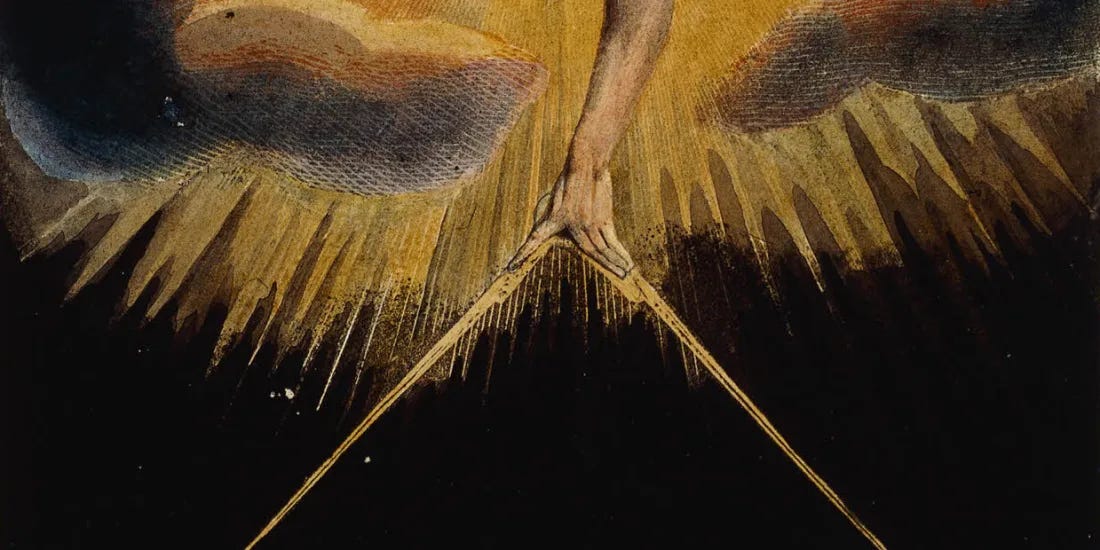The last third of March features one of the biggest astrological events of this decade: Pluto’s entrance into Aquarius on March 23rd. Since 2008, Pluto has been traveling through the sign of Capricorn. Now, for the first time since the late 1700s, Pluto will re-enter Aquarius. Since Pluto spends so long in any given sign, its effects are for the most part broad and generational—the underlying mood of a chapter in history. It can be easy, after five years, or twenty, of Pluto’s occupation in one sign, to forget that the way things are now are not the way they will always be. With Pluto moving into a socially and ideologically-oriented air sign, we are on the cusp of radical collective change.
Pluto, as one of the last major bodies at the edge of our Solar system, moves very slowly from the point of view of the Earth. It takes approximately 250 years for Pluto to make a full lap around the zodiac, and it spends 12-30 years in each sign. The more slowly that a celestial object moves, the more gravity (*pun fully intended*) it tends to exert on the archetypal and mundane realities that we experience.
In astrology, Pluto performs (but is not limited to!) three major tasks, personally and collectively, which I will expand upon:
The invisible is made visible
The visible disappears
Thresholds are introduced that are irreversible once crossed
Firstly, Pluto brings the invisible forward. Around the time when Pluto was first discovered in the 1930s, the neutron was first detected and an atom was split for the very first time, in a flurry of atomic research that redefined the fabric of existence as we know it. Power in the Atomic Age (and ever since) rested completely on objects and forces that could not be seen or perceived directly—only their effects were felt. Similarly, Pluto’s (see: Hades’) mythic realm is that of the invisible, the hidden, the underworld, death, and the soul, all of which cannot be observed, only experienced.
In the collective, Pluto’s movement through the signs often reveals, modulates, and amplifies things that we are afraid of, disgusted by, and yet magnetized to—like our mortality. In Aquarius, an air sign associated with human progress and social order, our fear and fascination will likely shift towards the invisible lines between what does and does not make us (or our technology) truly human. See: The Uncanny Valley. Yet even as the frightening and alluring specter of AI grows larger each day, some of the underlying ethical questions we face now are not exactly new. Mary Wollstonecraft Shelley, whose birth chart prominently featured Pluto in Aquarius, explored these themes deeply in Frankenstein, or the Modern Prometheus.
On a personal level, Pluto transits tend to bring what is concealed or invisible to light in our lives, through the surfacing of secrets, repressed material, hidden complexes, longings, and motivations that have gone unacknowledged. Those with personal planets between 0° and 3° of Aquarius, Taurus, Leo, and Scorpio, will begin to experience some of this uncovering process between now and 2025.
Curiously, Pluto also makes the visible disappear. Pluto has a disintegrative effect on reality, diminishing or outright ending what we once held certain. Just as literal death arrives soundlessly to take the living, shifts in Plutonic eras tend to mark the quiet dénouements of certain cultural institutions that we take for granted. These generational shifts are often much clearer in the rearview mirror of history than they are in the moment, but nonetheless, it's worth noting that we are on the precipice of another sea change in culture. As Aquarius is the detriment place of the Sun, we are likely to see a de-emphasis or disappearance of Solar figures and motifs, particularly around hierarchy, tradition, and centralized power. Pluto’s last trip through Aquarius (1777-1798) coincided with the Age of Revolution, in which simultaneous, decentralized social movements changed the political and economic landscape of the Western world—toppling some monarchies and established social strata, and diminishing the visibility of concentrated authority. This period also coincided with the Enlightenment, which led to a wider dispersal of knowledge among everyday people through both the progress of scientific discoveries and the loosening hegemony of the Catholic Church. Though much of the zeitgeist during this period was aimed at the idea of human progress (liberté, égalité, fraternité, etc), it’s worth noting that harm was created as much as it may have been countered by each of these historical examples. Science was weaponized as a rationalization for existing cultural biases, and revolutionary crusades were never intended to provide rights for all. Pluto’s role here is archetypal — shadows can be cast or dispelled.
In our individual lives, Pluto’s time in Aquarius may shake our own sense of what is most central. Pluto transits to personal placements can be an initiation towards ego dissolution, encouraging us to move our perspective to the margins and release constricting definitions about who we are. We may find that we are led to consider how the structures—social, political, economic, etc.—we live inside of have shaped our self-conception, and to break outside of them. Or, similarly, to learn how to cope (and to redefine power) when these social structures shape-shift or disappear entirely.
Lastly, Pluto creates thresholds that are irreversible. Plutonic change is substantial, permanent, and no-take-backsies change. In many underworld myths, the heart/soul cannot be known completely without the initiation and transfiguration of death (here’s my favorite version of this). While rebirth is possible according to many spiritual traditions—nothing and no one is ever unchanged by death. Likewise, eras in history cannot be recalled, or returned to, once they are gone (though their themes may repeat). Collectively, we can expect that just as the industrial revolution of the late 18th century laid a foundation for an entirely new world, the next twenty years will likely change everyday life in ways that will be unrecognizable and thoroughly transformative.
Pluto transits to personal placements can create their own thresholds of metamorphosis. Since change always requires sacrifice and surrender, these periods can be quite challenging and painful when they arise. Yet loss is not without purpose. Just ask a worm, a mushroom, or a millipede. Death feeds the continuation of life. The original name of Pluto, Ploútōn, meant “wealthy,” or “riches,” as ancient Greeks and Romans recognized the connection between compost and fertile, nutrient-dense soil. As Pluto moves through Aquarius, the aspects it forms to our personal planets and points do have the potential to be enriching, particularly for our social lives, our intellects, and our willingness to experiment for the sake of meaning.
Since Pluto is retrograde for about half of each year, it often seesaws between signs for a year or two before the full ingress. Pluto will remain in Aquarius until June, then re-enter Capricorn until January of 2024. After the fall of 2024, Pluto will enter and remain in Aquarius until 2043. Plenty of time to keep unpacking this one, eh? ; )
In other astrological news, on the 25th of March, Mars will finally exit Gemini after a nearly nine-month long occupation. This shift will bring Mars out of the extroverted, social realm of air and into the emotional, internal terrain of water. Mars is a planet of action and aggression, representative of the warrior archetype within each of us and the many manifestations that desire, force, and achievement can take in the world. In Cancer, Mars will be more in tune with the sensitivities of the heart—for better or worse. While this ingress can signal more emotional awareness vis-à-vis our actions, it can also be a time when we struggle to handle intense feelings, especially around conflict or any real or perceived threat to our sense of safety. A silver lining comes through on the 30th when a stabilizing trine forms with Saturn in Pisces—hopefully connecting us with our inner wisdom and offering a gentle, cooling influence.
Mercury will be conjunct Jupiter in Aries on the 28th — a lovely, once-a-year transit that can spark our desire to learn, grow, and share our knowledge. In the fire sign of Aries, we may be drawn towards subjects that are experiential, embodied, creative, daring, and action-oriented. This transit is also the last chance to catch Jupiter in the night sky for a while. Look for a cluster of two bright stars on the Western horizon just after sunset—you may see them faintly.
Take good care! And see you in April.






